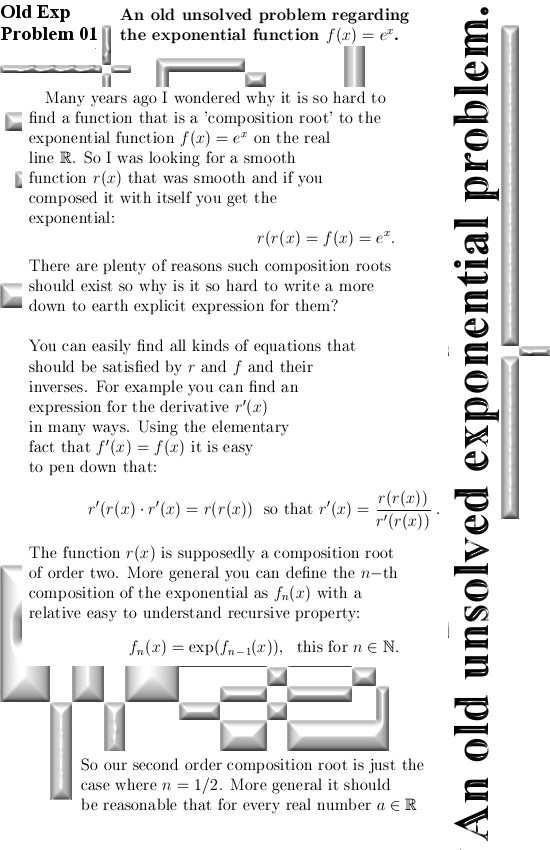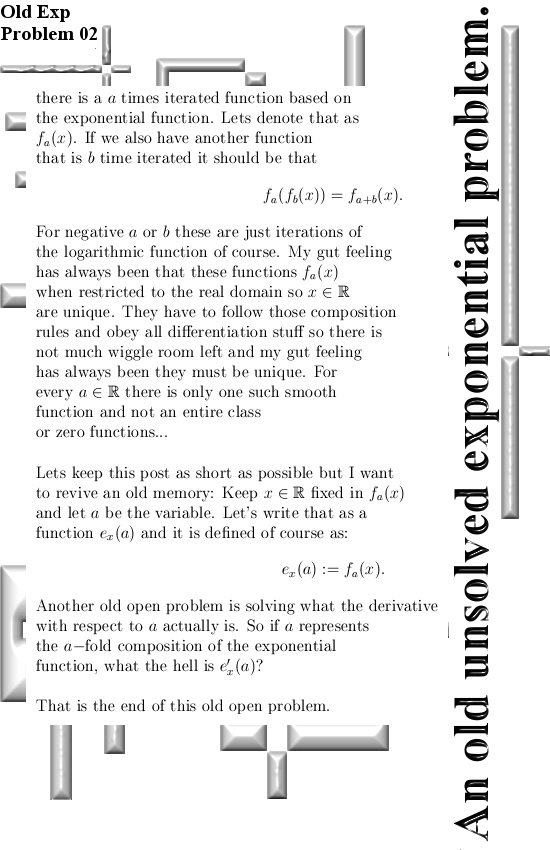This is a problem I found about thirty years ago and I was never ever able to solve it. The problem as I formulate it is about finding a so called ‘composition root’ to the exponential function. Just keep it simple, say the composition ‘square root’. If we denote that as r(x) what I mean is that this function if composed with itself gives the good old exponential function: r(r(x) = f(x) = e^x.
There are many interesting aspects to this problem. For example take a piece of paper and a pencil and draw the graph of the exponential function and the identity function. It is now very easy for every point on your graph of the exponential function to find the graph of the double composition f(f(x) = e^(e^x)). But, as far as I know, you cannot go back and given the function f(x) find it’s composition root r(x).
It is very well possible that this problem is solved in the theory of dynamical systems. If memory serves we once had a lesson in when a family of functions could be interpolated but that was 30 years back and what I want is explicit expressions and formula’s and not only a vague existencial proof without a way to find an explicit answer.
Back in time before the logarithm was invented, the people of those long lost centuries had a similar problem understanding what exponential behaviour was. And you can go a long way in understanding exponential behaviour but say for yourself; without knowledge of the logarithm that kind of knowledge is far from being optimized.
In this post I only talk about the composition square root but of course any n-th root should be possible and as such giving rise to the idea that you can iterate or compose the exponential function also a real number amount of times. I have to admit I also have no proofs for the solution to this all being unique, but you should be able to differentiate all stuff found and it should still be coherent so my gut feeling says the solution is unique. My guess is there is only one ‘composition square root’ r(x) that is as smooth as f(x) itself…
This post is only two pictures long so here we go:


And it is also the end of this post. Give it a thought and if you are able to make some inroads on this that would be great. But all in all I think we do not have the math tools to crack this old old problem.
See you around in the next post.